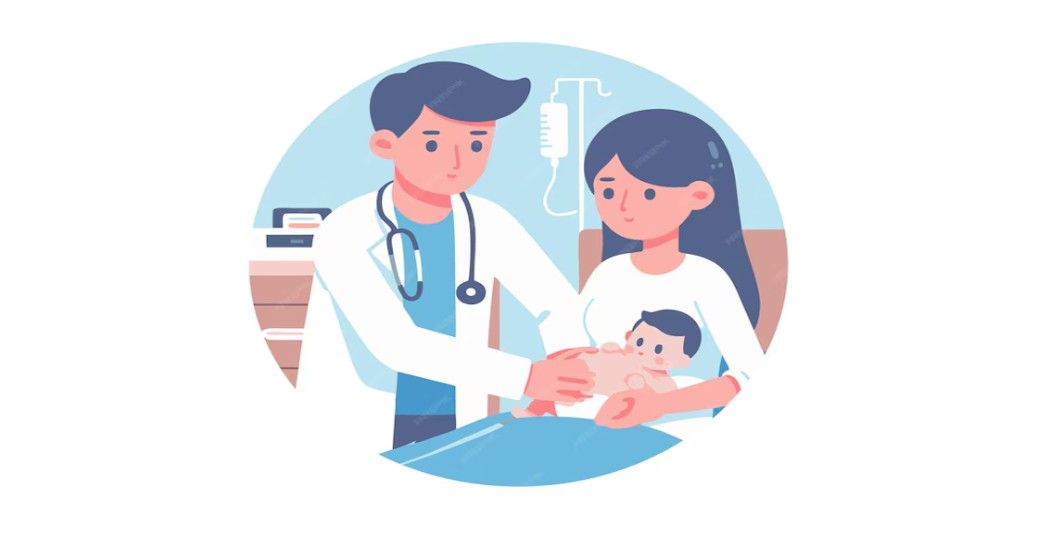Diabetes Management
Understanding Diabetes-Related Eye Diseases
2 min read
By Apollo 24|7, Published on - 08 February 2024, Updated on - 22 February 2024
Share this article
0
0 like

Diabetes can affect various aspects of your health, including your eyes. Let's explore the connection between diabetes and eye diseases and the symptoms and risk factors associated with these conditions.
How Diabetes Affects Your Eyes:
Diabetes High blood glucose levels can damage the blood vessels, alter fluids, and affect the lenses in your eyes, potentially leading to vision problems or blindness in people with diabetes.
Types of Eye Diseases Related to Diabetes:
1. Diabetic Retinopathy:
This common complication damages the part of the eye responsible for turning light into signals for your brain to process vision, called the retina. High glucose levels in the blood can harm the retina, leading to vision impairment and blindness.
2. Diabetic Macular Edema (DME):
(DME) is a condition where the central part of the retina, which is responsible for sharp vision, becomes swollen due to high glucose levels in the blood. This swelling can cause partial vision loss or blindness, making it difficult to read, drive, or recognize faces.
3. Cataracts:
Diabetes increases the risk of developing cataracts, characterized by clouding the eye's natural lens. High glucose levels cause deposits to build up in the eye's lenses, leading to blurry vision.
4. Glaucoma:
Neovascular glaucoma, a form of glaucoma, is caused by diabetes. High sugar levels can damage the retina's blood vessels and create abnormal new ones, leading to increased eye pressure and glaucoma.
Recognizing Symptoms:
- Blurred, cloudy, or disturbed vision
- Floaters or dark spots
- Difficulty seeing at night
- Flashes of Light
- Tunnel vision, eye pain, headache (glaucoma)
Understanding Risks:
To lower your risks:
- Keep blood sugar levels under control
- Manage blood pressure effectively
- Monitor diabetes trends closely and regularly
- Be aware of age-related risks for cataracts
- Consider family history for glaucoma
Prevention:
Regular eye check-ups, proper diabetes management, a healthy lifestyle, and addressing risk factors are vital for preventing and managing these eye diseases.
Conclusion:
As we navigate the challenges of diabetes and its consequences, safeguarding our vision is essential. By staying informed, adopting a proactive approach to our health, and seeking timely medical care, we can reduce the impact of diabetic retinopathy, DME, cataracts, and glaucoma, preserving the gift of sight for a brighter future.
Diabetes Management
Consult Top Diabetologists
View AllLeave Comment
Recommended for you
.jpg?tr=q-80)
Diabetes Management
A Guide to Consuming Pumpkin for Diabetics
Wondering if pumpkin is good for diabetes? Yes, it can be! With its low glycaemic load, nutrient richness and antioxidant properties, pumpkin makes for a smart choice. But remember - the key lies in portion control, smart cooking methods, and pairing it with proteins and fibre. For comprehensive guides and support in diabetes management, consider enrolling in the Apollo Super 6 programme.

Diabetes Management
How Does Artificial Intelligence Contribute To Diabetes Care?
Artificial intelligence is revolutionising diabetes care, from predicting risks and controlling glucose levels to personalising treatment plans. While challenges exist, collective efforts can help harness the full potential of AI. To support this, initiatives like the Apollo Super 6 programme provide holistic guidance for diabetes management, aligning with the personalised approach of AI in healthcare.

Diabetes Management
The Impact of Gestational Diabetes on the Baby's Health
Gestational diabetes, a high blood sugar condition that develops during pregnancy, can potentially impact your baby's health in various ways. From an increased birth weight to the risk of obesity and type 2 diabetes, understanding these possible effects can help in managing this condition.
Subscribe
Sign up for our free Health Library Daily Newsletter
Get doctor-approved health tips, news, and more.
Visual Stories

8 Fruits That are Incredibly Healthy for Diabetes
Tap to continue exploring
Recommended for you
.jpg?tr=q-80)
Diabetes Management
A Guide to Consuming Pumpkin for Diabetics
Wondering if pumpkin is good for diabetes? Yes, it can be! With its low glycaemic load, nutrient richness and antioxidant properties, pumpkin makes for a smart choice. But remember - the key lies in portion control, smart cooking methods, and pairing it with proteins and fibre. For comprehensive guides and support in diabetes management, consider enrolling in the Apollo Super 6 programme.

Diabetes Management
How Does Artificial Intelligence Contribute To Diabetes Care?
Artificial intelligence is revolutionising diabetes care, from predicting risks and controlling glucose levels to personalising treatment plans. While challenges exist, collective efforts can help harness the full potential of AI. To support this, initiatives like the Apollo Super 6 programme provide holistic guidance for diabetes management, aligning with the personalised approach of AI in healthcare.

Diabetes Management
The Impact of Gestational Diabetes on the Baby's Health
Gestational diabetes, a high blood sugar condition that develops during pregnancy, can potentially impact your baby's health in various ways. From an increased birth weight to the risk of obesity and type 2 diabetes, understanding these possible effects can help in managing this condition.

